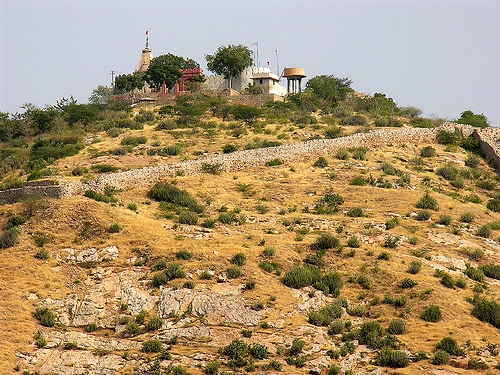Bhuvaneshwar
There is a Shiva temple which is situated at a distance of 9 km from Dungarpur on the road side near Kanba village in Dungarpur tehsil.
There is a Shiva temple which is situated at a distance of 9 km from Dungarpur on the road side near Kanba village in Dungarpur tehsil.
The temple of Boreshwar Mahadeo is situated at a distance of 83 km from Dungarpur near village Solaj in Aspur tehsil and belongs to 1179 A.D.
A beautiful 12th century temple. Built in white stone, the temple has imposing currants. It gives an impression of the antiquity. There are several inscriptions in the temple.
An important Muslim pilgrimage center, Galiakot is famous for the tomb of the Saint Fakruddin. Each year thousands of Bohra Muslim pilgrims flock here to pay homage to the saint.
About 50 km south east of Dungarpur is the important Muslim Pilgrimage center of Galiakot. This town is famous for the tomb of the saint Fakruddin, who spread the word of Mohamad in the 10th century. Each year, thousands of local and international Bohra Muslims flock here to pay homage to the saint.
Jhajhirampura is famous for the natural water tank and temples of Rudra (Shiv), Balaji(Hanuman) and other religious god and godess. It is situated at around 45 Kms from district headquarter towards Baswa (Bandikui). Surrounded by hills and with natural water resource, this place has natural and spiritual glory.
Kaila Devi(Goddess) Temple is situated on the banks of the Kalisil river in Karauli district. The temple is dedicated to the tutelary diety, goddess Kaila, of the erstwhile princely rulers of the Karauli state.It is a marble structure with a large courtyard of a checkered floor.In one place are a number of red flags planted by devotees.The place is also famous for its fair held during the dark half of 'chaitra'(March-April) and lasts for a fortnight.
Another group of finely carved sculptures dating back to12th century AD that are worshipped are built in the front wall of a modern temple (built in 1965) known as Mataji ka Mandir etc. On the way to the Bawdi is the Harshd Mata Temple. It is dedicated to a goddess. It was built by King Chand or Chandra of Nikumbha Rajputs of Chahamana Dynasty who was ruling at Abaneri or ancient Abha-Nagari (City) during 8th - 9th century A.D. Facing East, this temple is raised over double terraced platform. Originally hails the super structure of the Mahameru Style.
Sri Mehandipur Balaji Temple is dedicated to Lord Hanuman who is a symbol of courage in Hindu mythology. The name Balaji is applied to Sri Hanuman in several parts of India because the childhood (Bala in Hindi or Sanskrit) form of the Lord is especially celebrated in those parts. Adherents believe that the deity in the Mehandipur temple has divine powers to cure any person possessed by evil spirits. It is also believed that Shri Bala Ji Maharaj saves His devotees from unfavorable grahadashas (planetary configurations).
A large stone Linga, was also found whose top only is visible above the ground. It originally belonged to a Shiv Temple on the summit of the hill and a temple of Nilkanth Mahadev now occupies the site. The Temple is situated on the Aravali mountain range is at the centre of Dausa district. The temple is situated at the top of a hill. The temple is said to be 100-200 years old. Rajput kings used to have security arrangements adjacent to the temple. Cannons are still seen on the temple complex.

At present there are five Shiva temples in Dausa. All the five Shiva lingas belong to late medieval period, including the one on the top of the hill described by Daya Ram Sahni The top of the hill is occupied by an irregularly shaped fort, which is believed to have been constructed by a tribe of Bargujars. It is said that it was extorted by the Kachhawah Prince, Dulha Rai, when he migrated from Narwar in Gwalior around 967 AD.